|
|
|
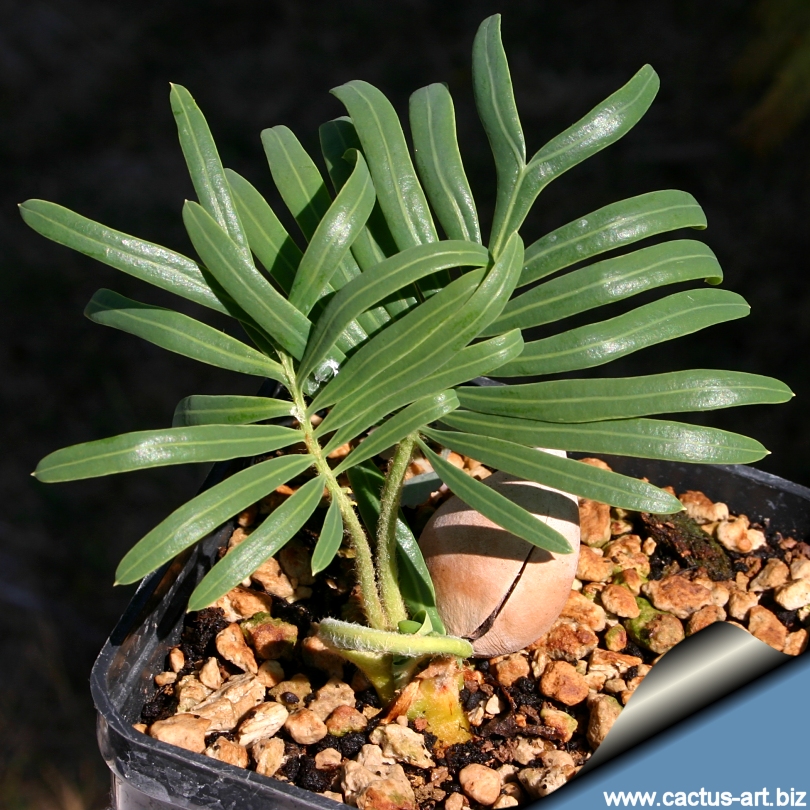
Cycas siamensis siamensis (2 years old seedling)
The rare silver form of is a very striking plant, both
glinting and elegantly characterized by its emergent leaves that are
more silvery-grey than the standard species. The leaves retain much of
this colouring over time. However the young seedlings are dark green in
colour for some years.
|
|
Description: It is a short stemmed palm-like plant with a swollen
trunk and an attractive crown.
Stem: Short very slow growing, arborescent to acaulescent up to
1.5 m tall, 14-20 cm diam. at narrowest point. The trunk has a wrinkled
bark and red-brown tomentum at the leaf base. It has a well marked
bulbous base, often becoming broad and plate-like in older individuals.
Often the plants reach reproductive maturity before any aerial stem is
developed.
Leaves: Annually deciduous, pinnate, with 140-280 leaflets inserted
at 170-180° on rachis flat (not keeled) in section with a very short
petiole and basal leaflets gradually reducing in size towards the spines
usually 60-120 cm long, but occasianally up to (perhaps) 2 m. They also
are usually densely brown-tomentose, with the tomentum persisting around
their bases and on the trunk around the persistent leaf-bases. The
leaves are usually dark green, but vary in colour from white through
yellow, orange to brown, depending on the colour of the persistent hairs
above and below on the leaves. There are no other clear distinguishing
features, and they must all be regarded as the same species. The woolly
white form is often sold as "Silver" or "Thai Silver" form.
Male cones: Small of a distinct oblong shape, orange to brown, 10-24
cm long, 5-7.5 cm diam.
Seeds subglobose: 30-37 mm long, 26-37 mm wide.
|
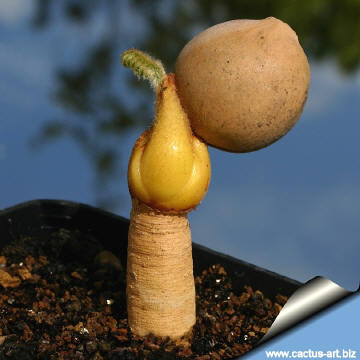
A germinating seedling showing the strong tap root. |
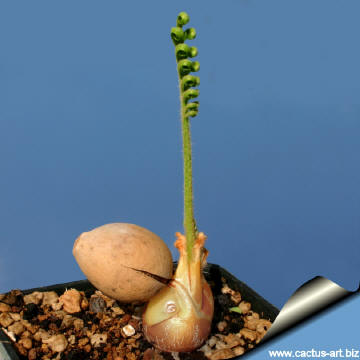
The first leaf. |
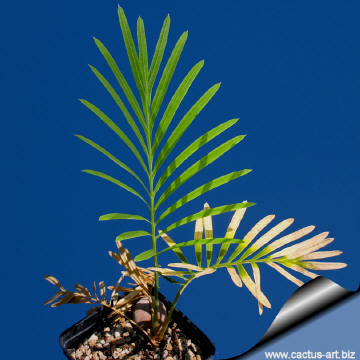 |
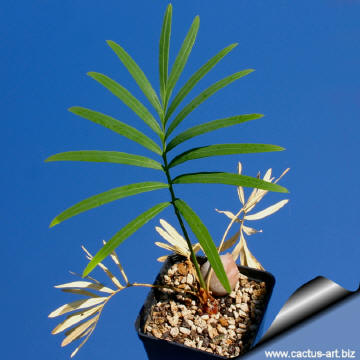 |
|
Three years old. The leaves are annually
deciduous, the older gradually fade as the fresh start growing. |
|
Warning: All parts of this plant are highly toxic, but rarely eaten
due to poor flavour.


Advertising
|
|
|
|
|
Family: Cycadaceae
Scientific name: Cycas
siamensis Miq.
Published in: Bot.
Zeitung, Berlin 21: 334 (1863)
TYPE: Thailand, Kanchanaburi, "Siam, prope Kan-Boeric in collibus
lapidosis" m. Martii 1862, J. E. Teysmann s.n., Mar. 1862 (holo U, 2
sheets).
Origin:
Central Thailand and Vietnam. Also recorded from Laos, Cambogia and
Myanmar (Burma).
Habitat: It is
a widespread and locally extremely abundant species, it is found in many
places in dry open deciduous forest on poor rocky soil to 1200 m. This
species occurs in full sun to light shade on flat country or on low
hills, often in dense stands. These woodlands are characteristically
seasonally wet and dry with the monsoon weather patterns of the region,
with particularly pronounced and extended dry periods.
Conservation status: Listed in
CITES appendix 2.
Common English Names include:
"Silver Cycas" or "Thai Silver
Cycas"
Etymology: From the
occurrence in Thailand, known as the Kingdom of Siam when this species
was described.
Synonyms:
- Epicycas siamensis
(Miq.) de Laub.
- Cycas immersa
- Cycas aurea
- Cycas
cochinchinensis
|
|
|
|
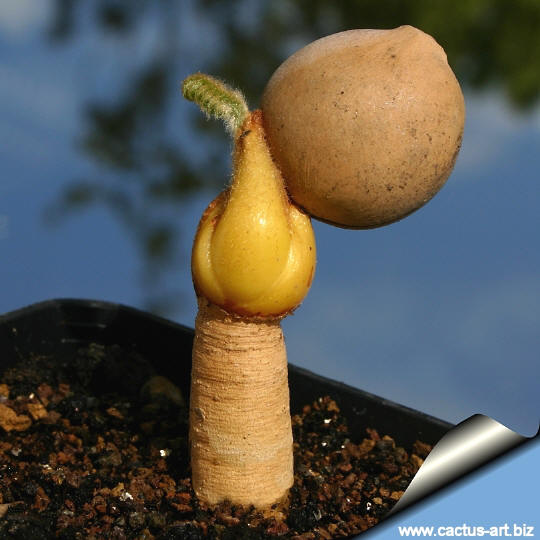
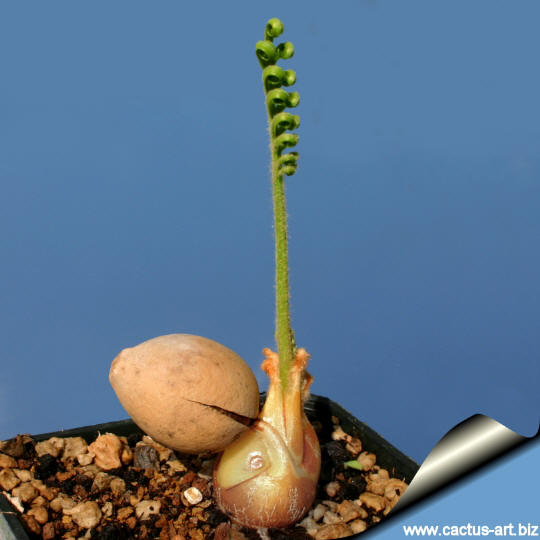
Cultivation:
Ideal for the tropical to warm
temperate garden and particularly adapted to pot culture, it requires
partial sun and a well drained soil. In cultivation, at
least in cooler climates, it is one of the few deciduous cycads, losing
its leaves every winter. Coming as it does, from areas with high annual
rainfall, it requires a plentiful supply of water and should never be
allowed to dry out, but eventually
it could stay dry for a long time. it's a bit fastidious
for this climate- prefers it wetter and warmer (In temperate
climate the plant might be treated like a succulent and kept
rather dry and cool during the winter)
Propagation: Easy to germinate ,
Point of interest:
Silvery foliage makes this new cycad very spectacular. |
|







